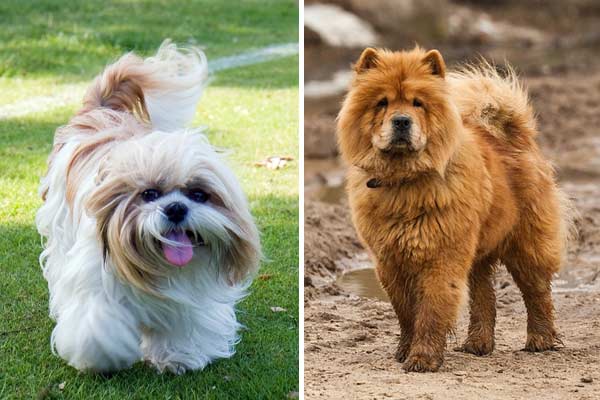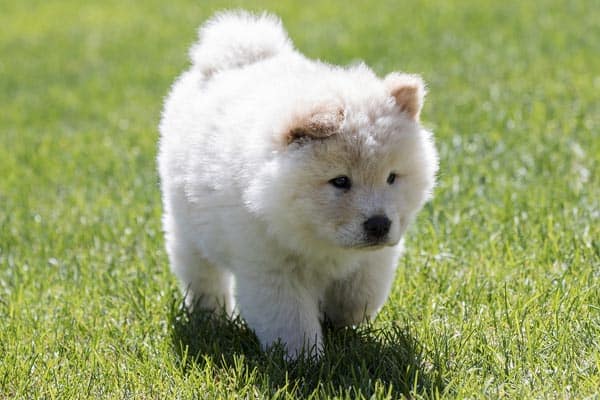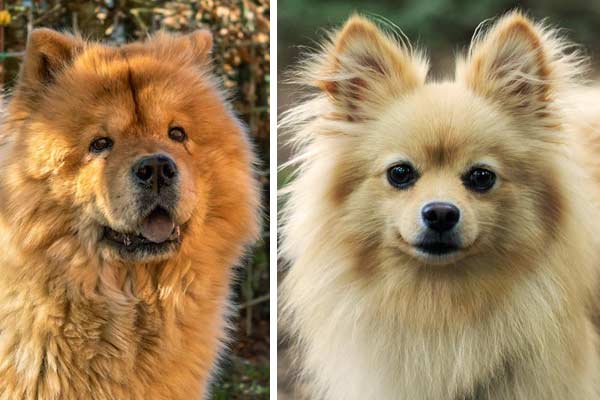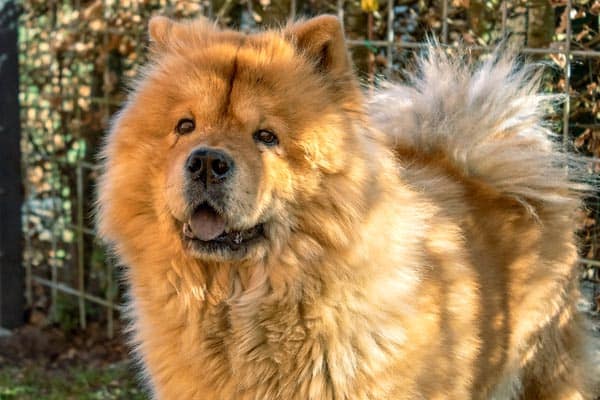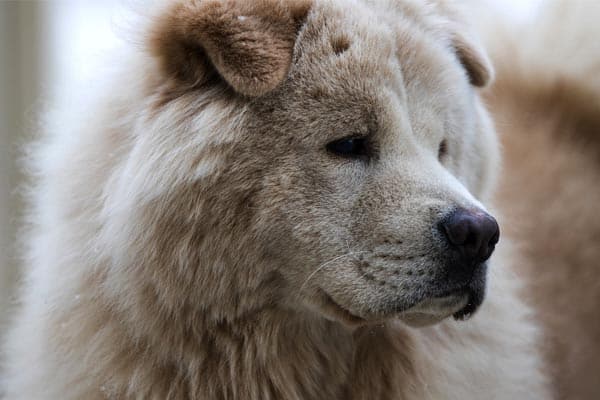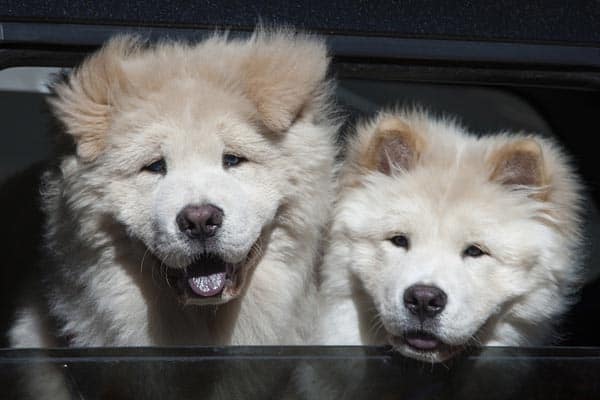Do Chow Chows Have Lock Jaw: Dispelling the Myth Once and For All
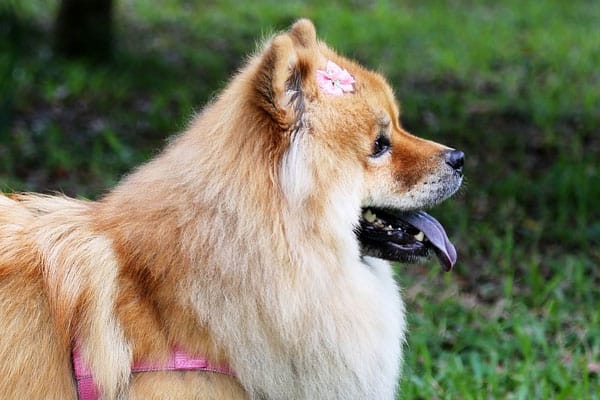
While the majority of people love dogs, there are some people who have had bad experiences with dogs as well as some people who are simply afraid of dogs.
This is likely how myths like the canine lock jaw get started.
While there is evidence to suggest that some dog breeds may have a stronger bite force or bite strength than other breeds, there is zero evidence that any modern canine has a jaw that locks after biting.
In this article, we dispel this enduring myth with facts about the Chow Chow jaw.
Do Chow Chows Have Lock Jaw?
The short and sweet answer to this question is “no.” No dog breed has a jaw that can “lock” in any way.
This includes the much-maligned pit bull breeds as well as the Chow Chow, another dog that has been branded as “dangerous.”
However, just like some people can get “lock jaw” due to a loose or poorly formed jaw joint, so too can dog sometimes experience lock jaw for medical reasons.
See a Model of a Canine With Lock Jaw (Canine TMJ)
Many purebred dog breeds have developed certain heritable health issues due to intensive breeding towards a certain appearance standard (called the breed standard).
Joint malformations are one such health issue that can be heritable or genetically passed down from parent dogs to puppies.
In this short medical YouTube video from the Animal Surgical Center, you can see a 3-D model of a canine jaw joint that is stuck in the “open” position due to a faulty jaw joint.
This condition has nothing at all to do with the myth that some dog breeds like the Chow Chow have a bite that locks in the closed position.
No Dog Breeds Have Lock Jaw
As Animal Farm Foundation explains, there is absolutely no medical or scientific evidence that any dog breed has any type of locking mechanism to their jaw.
However, the myth that Chow Chows and other dog breeds have locking jaws is sufficiently colorful and shock-worthy that it persists and persists.
Chow Chows Can Have TMJ (Medical Lock Jaw)
As the University of California San Diego Comparative Neuromuscular Laboratory points out, in rare instances Chow Chow dogs can experience difficulty opening or closing their jaw.
This can be caused by malformation of the jaw joint, muscular atrophy, osteoarthritis of the jaw joint, and canine TMJ (commonly called ankylosis).
These medical conditions can be heritable or caused by trauma.
However, typically these conditions are gradual and progressive rather than sudden.
For example, a dog that has progressive muscular atrophy or osteoarthritis will have more and more trouble opening and closing the jaw until it suddenly “locks” in the open or closed position.
The dog’s owner will have plenty of warning about the condition and it is neither triggered nor caused by biting down on something. It is caused by something amiss in the dog’s jaw anatomy.
What Is the Chow Chow Dog’s Bite Force Strength?
As Psychology Today points out, a dog’s bite force strength is another area where fact and fiction often intertwine.
Here, the myth that these dogs come already equipped with a locking jaw isn’t the only persistent myth about Chow Chows that cause these dogs to be labeled as dangerous.
Bite force strength can be measured in a number of different ways.
Even worse, the measurement of bite force strength can change based on the size and shape of the dog’s jaw, the age and gender of the dog, the angle of the bite, and even the dog’s stance.
So saying that one dog breed such as the Chow Chow has a more dangerous bite than another dog breed is only valid if both dog breeds are measured apples to apples – same size, same bite angle, same everything.
Not surprisingly, as canine expert Stanley Coren points out, larger dog breeds with bigger jaws tend to have stronger bites (or more bite force).
But this conclusion does not single out anyone dog breed such as the Chow Chow. It simply makes a statement of fact that includes a very diverse number of dog breeds that are classified as large or giant size breeds.
Chow Chows Are Not More Dangerous Than Other Dog Breeds
But even having a bigger jaw and a larger body does not necessarily indicate a dog is inherently more dangerous.
Consider what Tales of Justice has to say about dangerous dog cases.
Usually when a dog breed is branded as “dangerous,” the literal translation of that word is “aggressive.”
Aggression is often measured as the frequency of the bite rather than the force of the bite.
Here, small and toy-sized dog breeds like the Chihuahua, Dachshund, Beagle and Jack Russell Terrier will outrank larger breeds like the Chow Chow because these smaller dog breeds bite more frequently and act more aggressively towards perceived rivals.
In cases where the aggressive behavior is specifically directed towards that dog’s owner, the Beagle, the English Springer Spaniel and the Cocker Spaniel score the highest in aggressive biting behaviors.
The Chow Chow, the Pit Bull (which is not a breed but rather a loose grouping that is often based on appearance), the Rottweiler, the Old English Sheepdog, the Papillon, the Lhasa Apso, and the tiny toy Poodle have all been classified as aggressive.
Behavior and Treatment Rather Than Breed Is the Best Predictor of Canine Aggression
But as The National Center on Domestic Violence points out, in these studies it is nearly impossible to separate out a dog’s behavior from how that dog is approached, handled, and trained (or not trained).
Dogs that have been abused, traumatized, relinquished, abandoned, neglected, misused for dog fights, or involved in other illegal activities are often the very same dogs that later behave in aggressive ways towards people or other animals.
A dog that is bored, left alone for long periods of time, suffering from social anxiety, bullied by other household pets, or subjected to inhumane living conditions may well act out in aggression when the opportunity arises.
As well, not every dog breed is suitable for first-time dog owners. Some dog breeds, due to the nature of their breed background, lineage and history, are less easy to train and socialize than others.
These dogs require an experienced K-9 trainer and handler to provide early and ongoing socialization and training so they integrate well to life in a family and community.
Chow Chows Are An Ancient Dog Breed
According to the American Kennel Club (AKC), the Chow Chow dog breed dates all the way back to the ancient Asian Han dynasty in 206 B.C.
These dogs are known to be aloof with strangers but loyal and loving toward “their” people.
With hunting, hauling, guarding, and protecting working dog history, it is not surprising that these are larger dogs with sturdy, athletic bodies.
But Chow Chows that are well-trained, socialized, and cared for with love and kindness are said to be dignified, adaptable, smart, and even serene. Most importantly, the Chow Chow dog’s jaws do not today and have never locked while biting.
Because the Chow Chow lock jaw myth is so pervasive, some insurance companies and even some cities ban owning a Chow Chow.
If you want to add a Chow dog to your family, it can be smart to check with your homeowner insurance provider and your local city ordinances first.
